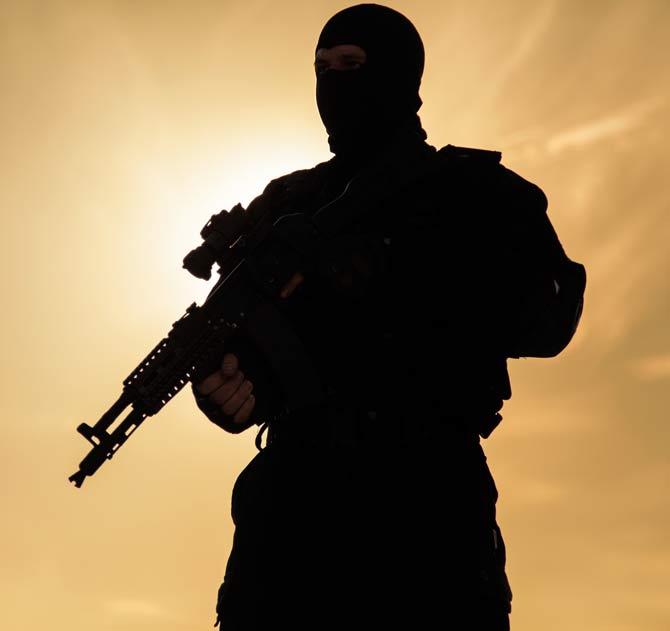The US today ruled out a recent request from the Taliban for a direct talk with the White House, unless it engages with the elected government of Afghanistan


Representational Picture
The US today ruled out a recent request from the Taliban for a direct talk with the White House, unless it engages with the elected government of Afghanistan. This comes a day after the Trump administration surprised the world by agreeing to a North Korean leader Kim Jong Un's invitation for a meeting with President Donald Trump. "Obviously there is no comparison between North and South Korea and the Afghanistan situation. I would note that North and South Korea have spoken to each other in advance of the president's offer to also engage in the conversation," senior US diplomat for South and Central Asia, Alice Wells, told a Washington audience at the US Institute of Peace, a US-Congress supported top American think-tank.
ADVERTISEMENT
"So, what we're looking for in Afghanistan is a fundamental recognition that in an insurgency, the insurgents and the government that is ruling need to engage in a conversation with one another as well as with other interested parties to that settlement. We have been very consistent in this approach," Wells said. In the absence of a full-fledged Assistant Secretary of State for South and Central Asia, she is currently the State Department's point person for South and Central Asia.
"We've been spending so much time focused on how do we get the Taliban across the starting line in recognition of a need for negotiations and how do we use our military actions to help shape the conditions for a successful negotiation," she said. The Afghan President Ashraf Ghani in the recently concluded Kabul Process conference in the Afghan capital, she said, laid out some important principles in his remarks about implementation of the peace process that this will be a part of a national plan that would encompass social development, that would be equitable, that would have a demobilization plan.
"That would require the support of the international community. There's no way to walk away from Afghanistan even in a time of peace. And so how can the donor community through targeted support help the government, at a time when it's going to be restructuring and demobilizing some of its own forces yet having to integrate and deal with the Taliban combatants as well," she said. Wells noted that it was a complicated process which cannot be pre-judged but underscored its importance for the success of the stabilisation of Afghanistan.
"So, the Afghan government's ability to manage conclusion to a piece and to manage its own security and territory in a responsible fashion will all feed into the international assessment of how we need to structure our future relations with the government of Afghanistan," Wells said, responding to a question on the presence of US troops in Afghanistan. Alleging that the Taliban had been indifferent to the Afghan people, she said the US sees that in their targeting of civilians or use of civilians as shields to the effort, there is an enormous cost that Afghanistan has borne.
"It's time for this conflict to end. There's a way to end this conflict. There's a will to end this conflict. There's international support to this. It's the Taliban who are the stumbling block to peace," Wells said. The top American diplomat said it's now up to the Taliban leaders to respond to this serious offer of talks from the Afghan President. "This is a peace offer that the US supports and is prepared to facilitate, but we cannot substitute for the direct negotiations that are required between the Afghan government and the Taliban leadership," Wells said in her remarks at the US Institute of Peace.
Wells said when it comes to the US, its conditions based South Asia strategy ensures the Taliban cannot win on the battlefield, but it recognises that a resolution to the conflict will be through a negotiated political settlement. "The recent Taliban letter to the people of the US misses the point. For eight years the US has been prepared to support a peace process, but we cannot be a substitute again for the Afghan people in the Afghan government in a negotiation with the Taliban," the top American diplomat said.
"Let us not forget that it was the Taliban which repeatedly refused to hand over Osama bin Laden and to this day the Taliban maintain relations with Al-Qaeda and a host of other terrorist organizations," she said. "We are not in Afghanistan to acquire it's natural resources to impose our own form of government to prevent the free practice of Islam or to destabilize the region," Wells said. "We will remain in Afghanistan as long as it takes to keep it from becoming a terrorist safe haven," she asserted.
Catch up on all the latest Crime, National, International and Hatke news here. Also download the new mid-day Android and iOS apps to get latest updates
This story has been sourced from a third party syndicated feed, agencies. Mid-day accepts no responsibility or liability for its dependability, trustworthiness, reliability and data of the text. Mid-day management/mid-day.com reserves the sole right to alter, delete or remove (without notice) the content in its absolute discretion for any reason whatsoever
 Subscribe today by clicking the link and stay updated with the latest news!" Click here!
Subscribe today by clicking the link and stay updated with the latest news!" Click here!







